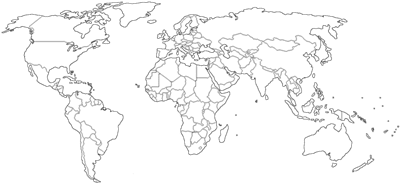Get access to latest Micronesia law and legal tenders and bids. Find government contracts and opportunities public and private procurement for Micronesia law and legal tenders, government law and legal contracts Micronesia, Micronesia legal aid tenders, drafting tenders, Micronesia arbitration tenders, legal advisory tenders, Micronesia legal affairs tenders, law legal bids, international law tenders, advocates tenders. Find Micronesia law legal tenders, bids, procurement, RFPs, RFQs, ICBs.
Law is a system of rules created and enforced through social or governmental institutions to regulate behavior, with its precise definition a matter of longstanding debate. The creation of laws themselves may be influenced by a constitution, written or tacit, and the rights encoded therein. The law shapes politics, economics, history and society in various ways and serves as a mediator of relations between people. Legal systems vary between countries, with their differences analysed in comparative law. In civil law jurisdictions, a legislature or other central body codifies and consolidates the law. Legality, in respect of an act, agreement, or contract is the state of being consistent with the law or of being lawful or unlawful in a given jurisdiction, and the construct of power.
Micronesia is a subregion of Oceania, consisting of about two thousand small islands in the western Pacific Ocean. The region has a tropical marine climate and is part of the Oceanian realm. It includes four main archipelagos—the Caroline Islands, the Gilbert Islands, the Mariana Islands, and the Marshall Islands—as well as numerous islands that are not part of any archipelago. Nationally, the primary income is the sale of fishing rights to foreign nations that harvest tuna using huge purse seiners. A few Japanese long liners still ply the waters. The crews aboard fishing fleets contribute little to the local economy since their ships typically set sail loaded with stores and provisions that are cheaper than local goods. Additional money comes in from government grants, mostly from the United States and the $150 million the US paid into a trust fund for reparations of residents of Bikini Atoll that had to move after nuclear testing. Few mineral deposits worth exploiting exist, except for some high-grade phosphate, especially on Nauru. The tourist industry consists mainly of scuba divers that come to see the coral reefs, do wall dives and visit sunken ships from WWII. Major stops for scuba divers in approximate order are Palau, Chuuk, Yap and Pohnpei. Some private yacht owners visit the area for months or years at a time. Copra production used to be a more significant source of income, however, world prices have dropped in part to large palm plantations that are now planted in places like Borneo. Countries in Micronesia - Guam, Kiribati, Marshall Islands, Micronesia (Federated States of), Nauru, Northern Mariana Islands, Palau, and United States Minor Outlying Islands.
This is a global tender information platform that provides a database of tenders from various industries and countries around the world. You can search for tenders by country, industry, and keyword, and view the details of each tender, including the deadline for submission, the requirements, and the contact information.
Government e-Procurement System: Many governments around the world have established e-procurement systems to manage their procurement processes.
Note that the tender processes are usually subject to various rules and regulations. Therefore, it is essential to carefully review the tender documents and follow the instructions to ensure that your bid is eligible for consideration.
Bidding on tenders requires careful preparation and attention to detail. Here are some general steps to follow when bidding on tenders:
Identify the tender: Search for tenders that match your business capabilities and interests. You can use online platforms like TenderNet, TenderSearch, or government e-procurement systems to find tenders.
Read the tender documents: Read the tender documents carefully to understand the requirements, deadlines, and evaluation criteria. Make sure that you are eligible to bid and that you can comply with all the requirements.
Prepare the bid: Prepare your bid by following the instructions in the tender documents. Provide all the information requested, including your company profile, experience, and qualifications. Explain how you will meet the requirements of the tender and provide any supporting documents.
Submit the bid: Submit the bid before the deadline. Make sure that you have included all the required information and that you have complied with all the instructions. Submit the bid in the required format, such as online or physical submission.
Follow up: After submitting the bid, follow up with the procurement agency to confirm that they have received your bid. You may also ask for feedback on your bid and the outcome of the tender.
Note that the tender process may vary depending on the procurement agency and the type of tender. Therefore, it is essential to carefully review the tender documents and follow the instructions provided.
Tags: Micronesia Law and legal Tenders, Micronesia Law and legal Bids, Law and legal Global Tenders, Micronesia Law and legal International Tenders, RFPs, RFQs, EOI, ICBs, Procurement news, Project Information, Contract awards.
